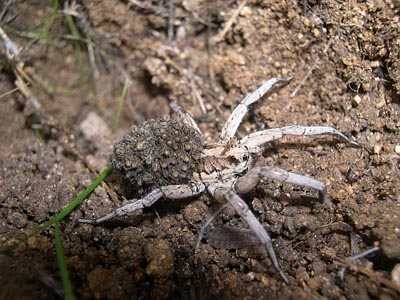The ravenous sexual cannibalism of the female Iberian Tarantula
These spiders devour their macho after having copulated, but a new study reveals this aggressive behaviour can occur before the female personality is reached
The aggressive behaviour of the female Iberian Tarantula is linked to her ferocious appetite, and she has to decide whether to eat or copulate.

Photo Wikipedia
Sexual cannibalism is a study published in the Journal of Ethology, and was carried out in the sub-desert area of Almería.
The scientific name for the Iberian Tarantula is Lycosa hispanica and it can live for about two years, during which time it can copulate with five or six machos, which have developed to be smaller than the females.
From each copulation as many as 500 spiderlings can be born.
About a third of the females have this cycle of copulation, generally those when more machos are around.
One of the experiments mentioned in the magazine to evaluate the personality of the female Tarantula was to offer the machos, chosen by chance, virgin females, and to see whether they copulated or turned to cannibalism. Before the trail the female would be given some beetles, her favourite food, to see how veracious she was.
When all the data was analysed a correlation was observed between ‘the context of pairing’ and the ‘context of eating’, with the conclusion that the female is more fierce and inclined to cannibalism the more she eats and after the first copulation.
In the most aggressive cases the female Iberian Tarantula can’t distinguish between a couple or food.
The scientists say cannibalism is good for the female for the nutrients it brings.
